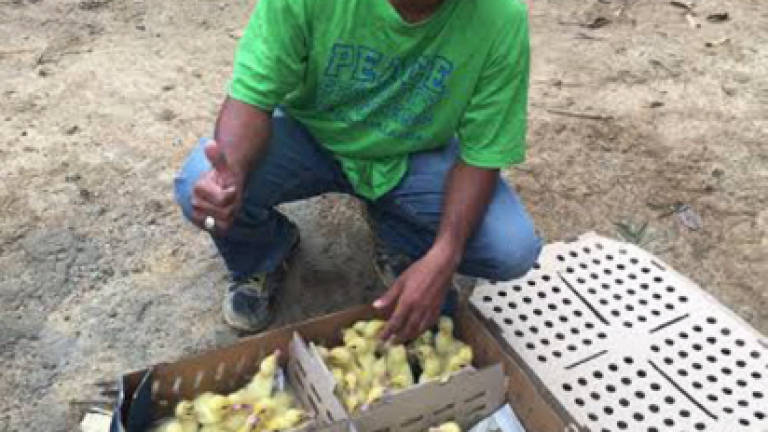El Nino has not ruffled feathers of duck breeders

IPOH: Although the searing hot and dry climate fuelled by the El Nino phenomenon has affected the nation's agriculture and fisheries sectors, it has not ruffled the feathers of Muscovy duck (itik serati) breeders here.
Surprisingly, the breeders have ducked the onslaught of the climate condition as the El Nino appears to have instead, boosted duck breeding, making them even more productive.
Muscovy duck breeder Faizal Effendi Hashim, 36, is testament to this.
He has been rearing and breeding the ducks for meat production in Parit, since two years ago.
"Usually, a duck is capable of laying up to 20 eggs and from that amount, only 10 will make it.
"However, in this hot climate, from the 20 eggs laid, as many as 19 would hatch, survive and thrive," Faizal Effendi told Bernama recently.
He said that each week, he was able to sell up to 120 ducks but that was still insufficient to meet market demands in Perak.
"The demand for duck (bred for meat) is rather high in Johor and Singapore, especially among Chinese customers who prefer it due to the texture of the meat," he said.
He said these Muscovy ducks required six months to fully grow before being sold in the market, whereas chicken required 34 to 40 days.
However, such is not the case for chicken farmer, Hafizi Abdullah, 28, who claimed that the mortality rate of his livestock had increased, even with the use of a closed chicken coop system.
He said as much as eight per cent of 40,000 of his chicken livestock died due to the hot weather as compared to only two or three per cent during normal weather.
He said day-old chicks needed temperatures of up to 35°C and it would lessen according to its age. Meanwhile, adult chicken require a temperature of 25°C or lower.
"Although the temperature of the closed chicken coop can be controlled, the much needed cold temperature that is unattainable is between the peak hours of between noon and 4pm, until it causes the chicken to die due to the heat wave," he added.
Hafizi said apart from the increase in rearing costs, other operational costs such as electricity, water, including maintenance had soared during the current draught season.
"The utility bills can reach up to RM11,000 for every two months, and this does not include maintenance costs and the worker's salary."
Last April 21, Agriculture and Agro-based Industry Minister Datuk Seri Ahmad Shabery Cheek said the hot weather had caused the nation's chicken to face stress as their growth was hampered, and it was feared it would also cause the nation's production of chicken to drop by between five and 10%. — Bernama